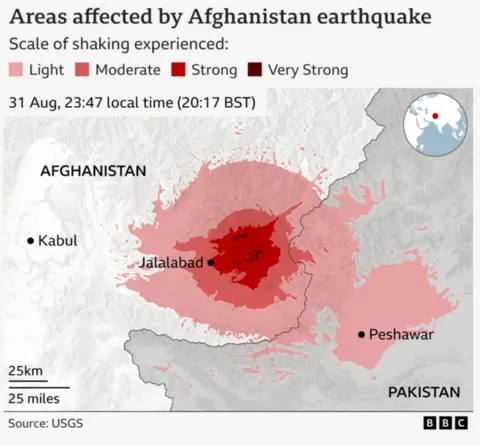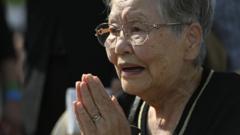Eighty years have passed since the liberation of Bergen-Belsen, but the memory of its horrors lingers on. The concentration camp, located in northern Germany, became synonymous with the unimaginable suffering inflicted on countless individuals, predominantly Jews, during the Holocaust. As the anniversary was commemorated on Sunday, more than 1,000 survivors and their families gathered to reflect on the events that transpired within its grim confines.
In April 1945, British and Canadian troops liberated the camp, uncovering an appalling reality that matched the rumors, photographs, and accounts that preceded their arrival. The soldiers were greeted by a harrowing sight—some 13,000 unburied corpses and a staggering 60,000 skeletal survivors amidst the debris of death.
Among the survivors recounting their experiences were Mala Tribich, who was just 14 at the time, and now at 94, recalls Belsen as a place bursting with despair. She grimly described seeing guards dragging bodies along in the camp. Esther Alice, another survivor who was 11 during her harrowing experience, shared the heartbreaking memory of her mother taking her last breaths in hut 221.
Despite the sun shining brightly over the commemoration, the atmosphere remained chilling as stories of the past echoed throughout the grounds. British soldier Michael Bentine, who later became a noted entertainer, captured the essence of Belsen's darkness in his writings, calling it "the ultimate blasphemy." Prominent journalist Richard Dimbleby, the first broadcaster within the camp, described that day as the most horrendous of his life.
Unlike other death camps that the Nazis attempted to erase, Bergen-Belsen's foundations remained intact—a testament to the brutality faced by the inmates. Over crowding led to rampant disease, and although Belsen did not have gas chambers, over 500 individuals died daily from malnutrition and illness, particularly in the final weeks of the war. Tragically, many who survived liberation found no respite, with an estimated 14,000 prisoners dying shortly after due to weakened bodies unable to handle nourishment.
As the commemoration proceeded, a poignant ceremony took place with a group of 180 British Jews attending, supported by the Jewish Military Association (Ajex). Dignitaries and religious leaders offered prayers and laid wreaths in honor of the lost, a necessary ritual amid the lush surroundings of Lower Saxony, where little remains of the camp's physical structures.
To prevent disease spread, British soldiers made the difficult decision to incinerate the huts in the aftermath of liberation—a reality that leaves the site almost devoid of its former horrors. Today, it features a visitor center and limited memorials, echoing the haunting losses represented by an inscription reading, "here rest 5,000 dead."
The commemoration serves as a vital reminder of the horrors endured, ensuring that the collective memory of Belsen remains etched in history.




















